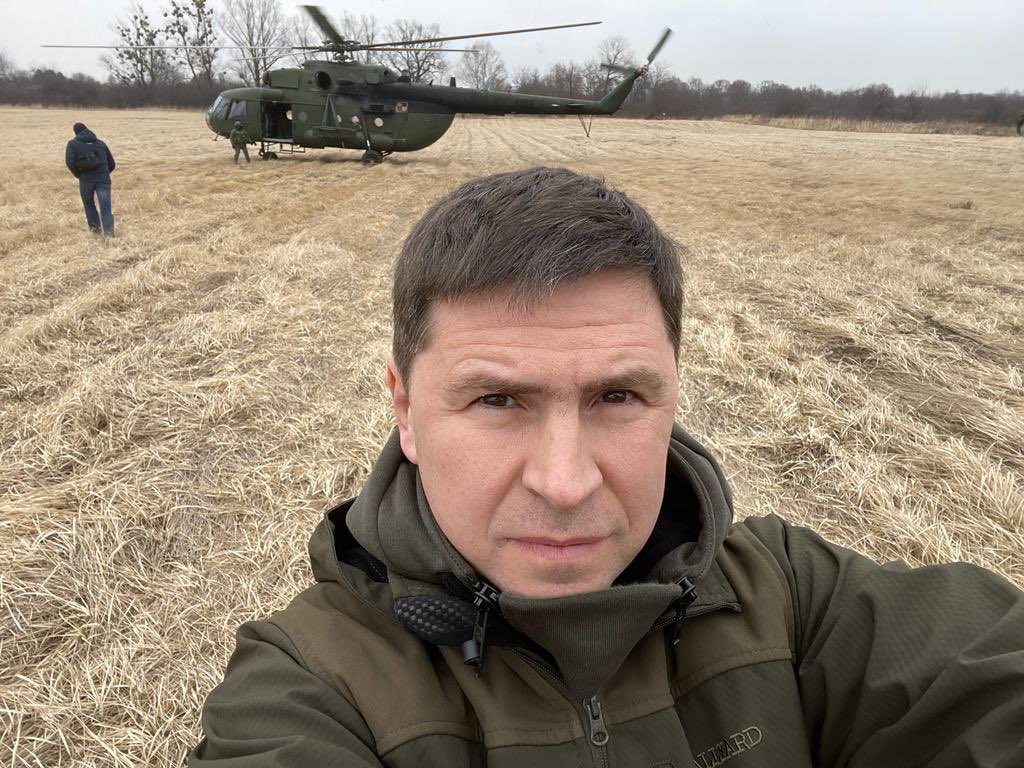
Mykhailo Podolyak, negotiator and adviser of Ukrainian President Volodimir Zelensky, said on Tuesday that talks to end Russia's military offensive in Ukraine are facing “profound contradictions”, although it is still possible to reach a “compromise”.
“It will continue tomorrow (Wednesday). It is a complex and very laborious negotiation process. There are profound contradictions. Of course, compromises are possible.” I said on Twitter.
Podolyak pointed out that both delegations are aware of the great differences between them, but stressed that there is also a feeling of reaching a compromise.
Podolyak argued that “there is a chance to reach a compromise.” Podolyak noted that although negotiations will resume tomorrow, several subgroups created for specific purposes will continue to work.
Meanwhile, President Zelensky repeated his call to the Canadian Parliament on Tuesday for a no-fly zone in his country, recalling the serious damage caused by civilian casualties and inviting people to realize the suffering of the people.
“Imagine a city being bombed and besieged,” Zelensky said in a live video intervention.
“They are providing us with military and humanitarian assistance and have imposed serious sanctions, but unfortunately we can see that this does not end the war,” he pointed out that Russia plans to “annihilate Ukraine.”
T he negotiations seek to achieve a ceasefire that would allow the establishment of a correct and safe humanitarian corridor, where the political part related to the Russian invasion of Ukraine and the issues that led to the war began last February 24.
Russia essentially requires Ukraine not to be a NATO member. It requires the recognition of the annexation of Crimea (carried out in 2014) and to accept the independence of the “People's Republic” of Donetsk and Lugansk, located in the Donbass region of eastern Ukraine.
Similarly, Moscow calls for Ukraine's neutrality and its withdrawal from the arms country, which it considers aggressive and, in the end, dangerous for security.

The fourth meeting began remotely on Monday, but according to Podoliak, who did not provide additional details, required a “technical recess” to facilitate the “further work” of the sub-working group and the specification of certain definitions.
The talks began on February 28, a few days after the start of the offensive, but there was no significant progress in any of the sessions. On Sunday, the negotiating team began to recognize specific points of contact during talks about the cessation of the Russian invasion and the ceasefire in Ukraine, but there is still a long way to reach a concrete position.
Podoliak previously stated that during the talks, the “immediate withdrawal” of the Russian army and the “guarantee of security” will be resolved.
In addition to the transcendent demands from the Russian side, so far the negotiating team did not want public demands
Information provided by AFP, EFE, Europa Press
Keep reading:
The Russian army took 400 people hostage in a hospital in Mariupol
Últimas Noticias
Debanhi Escobar: they secured the motel where she was found lifeless in a cistern
Members of the Specialized Prosecutor's Office in Nuevo León secured the Nueva Castilla Motel as part of the investigations into the case

The oldest person in the world died at the age of 119
Kane Tanaka lived in Japan. She was born six months earlier than George Orwell, the same year that the Wright brothers first flew, and Marie Curie became the first woman to win a Nobel Prize

Macabre find in CDMX: they left a body bagged and tied in a taxi
The body was left in the back seats of the car. It was covered with black bags and tied with industrial tape
The eagles of America will face Manchester City in a duel of legends. Here are the details
The top Mexican football champion will play a match with Pep Guardiola's squad in the Lone Star Cup

Why is it good to bring dogs out to know the world when they are puppies
A so-called protection against the spread of diseases threatens the integral development of dogs




